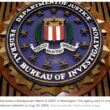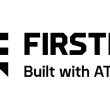Faster than a speeding bullet
The prospect of affordable high-speed Internet and virtual private network access that extends wired desktop computer capability to laptop computers in patrol cars has the Denver Police Department eagerly awaiting the launch of a Ricochet network that the department has been testing in limited areas of the city since February.
“It’s amazing what you can get with the speed. I’ve been used to a CDPD modem. Once you get one of these, it’s like going from dial-up to broadband,” said Lt. John Pettinger, commander of the department’s Computer Help and Information Planning Bureau.
Ricochet uses a dense network of short-range radios mounted mostly on lamp posts to support typical data rates of 175 kbps, with bursts to 400 kbps.
“With CDPD’s 9600-baud rate, we can’t send graphics, only small text items. With Ricochet, we receive emails with attachments. We send a lot of photos and digital camera pictures back and forth,” Pettinger said.
With high-speed data, officers in the field can access mug shots of arrests to confirm identities, a capability that Pettinger said the department had lacked. Photos previously sent to district stations for officer retrieval could be sent directly to patrol cars, possibly speeding the recovery of missing children, for example.
Pettinger said that pushing graphics to patrol cars is a huge step forward. The police department’s geographic information system brings up photos and maps of neighborhoods that could help with pursuits, searches and investigations.
“On GIS, you can see sidewalks, houses, sheds and other smaller structures, and an incredible amount of detail that we didn’t have before,” Pettinger said.
The network’s capability pleases Pettinger for another reason that involves keeping the department’s computers operational around the clock. Previously, an after-hours call would incur more overtime pay for network and system administrators because they had to drive to police headquarters or return home to a desktop computer.
“Now I give them a laptop computer and Ricochet. They don’t have to be tied to a computer at home or at headquarters. They fire up the laptop, log into the administrative interface with their access rights, and see about handling the problem remotely. I don’t pay as much overtime to resolve problems. And we’re getting network up a lot quicker than before Ricochet. We resolve 95 percent of the computer network problems via the wireless connection. From the perspective of network administration, that’s a huge benefit,” Pettinger said.
Once Denver’s city government gives Ricochet the go-ahead to use its pole-top radios for commercial customers, the network can be fully activated and service can be offered to the police department throughout the city. The city may give activation approval first, and then sort out the financial arrangements — whether to barter the pole-top rent for network service and products or exchange cash.
Pettinger sees value.
“We’re spending a lot of money on CDPD cards. The last one I bought was $299. And we’re paying $40 per month for unlimited access for CDPD. Between CDPD and Ricochet, the value is much better for Ricochet, and the performance is 10 times better. It’s frustrating to be on CDPD after you’ve been on Ricochet for a while,” he said.
The Denver Police Department has laptop computers in 400 vehicles, and Pettinger said that with the right deal for services, using Ricochet could offer a huge cost savings together with a large increase in mobile data capability.
Bishop is editorial director. His email address is [email protected].
Ricochet’s roots
Denver-based Ricochet Networks has roots in defunct Metricom, founded in San Jose, Calif., in 1985. KN Energy (now part of Kinder Morgan, Houston), a 10-state natural gas services company, once was home to several Ricochet Networks executives. KN Energy had been a Metricom reseller.
KN also incubated Aerie Communications, a planned, yet never built, national fiber-optic network on 12 gas companies’ rights-of-way. In 1999, and renamed “Aerie Networks,” the enterprise bought out its gas company investors under leadership by former KN executives with venture capital backing.
Metricom spent $1 billion to develop and partially deploy a wireless network using lamp post-mounted (“pole-top”) radios on unlicensed 902-MHz and 2.4-GHz frequencies. The network first was built to read electric power and natural gas meters. Later reconfigured with a speed boost from 28 kbps to 128 kbps and higher, Ricochet offered Internet access to consumers.
With only 51,000 customers in 14 activated markets, Metricom collapsed in July 2001. Omar Javaid, chief technology officer at Mobilocity, a New York technology services company, said that at $350 for modems and $75 for monthly service, the price was too high. And he said that Metricom should have pursued public safety and health care customers instead of consumers.
On Nov. 2, 2001, a bankruptcy court awarded 500 trailer-loads of network equipment to Ricochet Networks for $8.25 million. The court gave 16,000 installed pole-top base stations to lessors, mostly municipalities. Ricochet Networks prefers to exchange lamp post rent initially for free service — the method previously used by KN as a reseller.
Mort Aaronson, former president of KN’s non-regulated subsidiaries and now president of Ricochet Networks and its collocated parent, Aerie Networks, first wants to restart the Ricochet network in the 21 markets where Metricom had built it.

















